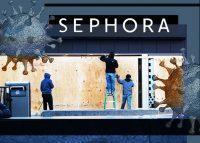One called for a total shutdown of business. Another advised startups to plan for zero revenue for six months. And a third had harsh words for impatient lenders. All three New York developers, Miki Naftali, Ryan Freedman and Steve Witkoff, made their views known about how they would deal with the deepening coronavirus pandemic.
The trio spoke with The Real Deal’s Hiten Samtani as part of a live series of webinars in which TRD discusses the crisis with industry pros and examines what comes next.
Witkoff, founder of the Witkoff Group, said the appropriate “medicine right now” is what state and local governments and private companies are doing: shutting down events and venues in order to slow the spread. But he warned the economic damage would be extensive.
“We’re a correlated world today,” Witkoff said. “That means that potentially the cure could be worse than the actual disease.”
Naftali, who leads the Naftali Group, criticized the regional approach to combating the spread of the disease. He wants the Trump administration to stop all domestic travel, and shutter all nonessential businesses. States like New York, California and Illinois have enacted near lockdown measures but the federal government has not issued such directives. Naftali said that, with the exception of several of his ongoing projects whose construction sites remain open, all his staff now work from home.
“The only way to deal with it is to close everything for 30 days,” he said, pointing to the fact Floridians continued going to the beach until late last week.
Witkoff called the images of boats congregating at sandbars “disrespectful.”
Freedman, who leads Corigin, which focuses on real estate and private equity investments, said his firm’s New York University student housing portfolio was emptied after the school shuttered. State officials notified him that his properties could be taken over for use as medical facilities, he said.
“You’re talking about things that are completely unprecedented,” he said. He didn’t know whether NYU would be footing the bill for the vacant rooms, and whether he will be able to tap into his insurer for that lost revenue.
“What we do know is that we’re on the same page. We all want this machine of our economy to turn back on,” Freedman continued. “I have to understand that my retail tenants are going to have an issue and be able to work with them. And if it’s so bad that I have a problem with my lender, I’m only hopeful that my lender will work with us on it.”
Witkoff said he couldn’t imagine a “credible” U.S. bank calling a default on a loan at this time. “It would be unpatriotic and un-American,” he said.
What could the real estate industry look like post-pandemic? Naftali said he believes that one of the lingering effects will be a decline in demand for shared space concepts, like co-working and co-living.
“This entire concept of the Z generation, about the WeWork world… and being with 30 people in a small area drinking tequila shots every second of the day — this is something that I think will take some time to come back,” he said. “My prediction is it’s going to take years to come back.”
What will return, he said, is the need for face-to-face interaction. Naftali noted that he doesn’t believe a deal can “really transact” through virtual showings alone. Until brokers are allowed to do in-person showings — New York Gov. Andrew Cuomo barred the practice last week — he’ll delay the launch of a forthcoming project on the Upper East Side, possibly into the first quarter of 2021.
Besides development, Freedman runs a seed-stage venture capital firm, Corigin Ventures, that has invested in a variety of real estate-focused tech firms including Compass. He agreed with Naftali on virtual showings.
He also shared how some of Corigin Ventures’ portfolio of companies are doing. One of its firms, hospitality company The Guild, shut down all its short-term product and “made some very difficult decisions to lay off a lot of people,” he said. But Freedman added the company will be able to resume operations after the pandemic ends.
He said most Corigin-backed startups were advised to “plan for zero revenue in six months.”
“If you can survive that, we are very confident that these companies will be able to turn on their revenue mechanisms again,” he said.
Write to Erin Hudson at ekh@therealdeal.com
—
Read more


